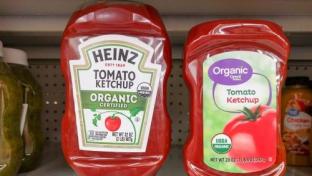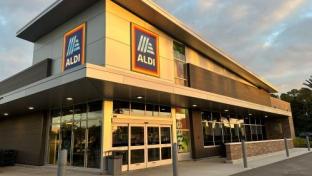Trader Joe’s Leads in Customer Satisfaction: Survey

Keeping customers satisfied in a period of high prices – with pandemic challenges and supply chain problems still fresh in the minds of many – can be a tall order. Still, a new survey shows that general satisfaction within the grocery sector remains stable, as the overall customer satisfaction within the retail trade has fallen 0.5%.
According to the new American Customer Satisfaction Index (ACSI) Retail and Consumer Shipping Study, the grocery industry netted an ACSI score of 76 out of 100 for the second year in a row. Breaking it down by banner, Trader Joe’s came in tops for satisfaction, with an ACSI score of 84. Costco Wholesale and Publix Super Markets hit an 82 to tie for second place. H-E-Bdipped to third place at 81, followed by ALDI U.S. and Wegmans Food Markets at 80, and BJ's Wholesale Club, Sam's Club, Target Corp. and Whole Foods Market at 79.
[Read more: "Which Grocers Have the Best Loyalty Programs?"]
Forrest Morgeson, assistant professor of marketing at Michigan State University and director of research emeritus at the ACSI, told Progressive Grocer that the findings show how grocers have continued to respond to change. "In an industry where price competition is relatively extreme like supermarkets, the 'lack of a decline' in value given the high inflation is certainly a 'win,' and probably indicative of firms offering more aggressive discounts — and maybe bundles — that are perceived as compensating for those rising prices in some ways," Morgeson said.
That said, there has been a slight ebbing in satisfaction with some retailers. Even leader Trader Joe’s saw a 1% dip in its score last year. Other retailers that experienced a 1% slide include H-E-B, ALDI, Wegmans, Hy-Vee (76 score), The Kroger Co, (76 score), Meijer Inc. (75 score), ShopRite (75 score) and Southeastern Grocers (74 score). The bigger gainers included Target, up 3%, and Albertsons Cos., up 4%. Walmart Inc. rounded out the list, with a 71 ACSI store that was 1% higher than last year.
Morgeson noted that the slight changes could be attributed to the successful execution of e-commerce and grocery tech tools. "For gainers and losers, our data shows that those who gained were better able to pivot to serve customers’ needs during the pandemic by having superior digital experiences, and a high level of customer service, including excelling at in-store pickup " he said.
Several areas of the customer experience were used to measure satisfaction in this survey, including ease of pickup process, quality of mobile app, convenience of store hours, convenience of store location, layout and cleanliness of store, ability to provide brand names and quality, speed of checkout process and freshness of meat and produce, among other attributes. The ease of the pickup process got the highest score as a benchmark in the survey, at 86.
In addition to the grocery sector, the study included ACSI benchmarks for general merchandise retailers, specialty retailers, drugstores, fuel stations and online retailers. In GM, wholesale warehouse clubs fared well, with Costco (82 score) topping that list, followed by Sam’s Club (81 score) and BJ’s (80 score). Dollar General and Walmart came in last, falling 3% and 1%, respectively, with a 70 rating. The convenience industry, meanwhile, had a good year, with high scores for mobile apps and in-store pickup. The dog site Chewy took first for customer satisfaction among online retailers, followed by Amazon at 84.
The annual ACSI Retail and Consumer Shipping Study is based on interviews with more than 35,000 customers conducted between January 2022 and December 2022. The full study is published online.
With more than 500 stores in 40-plus states, Monrovia, Calif.-based Trader Joe’s is No. 27 on The PG 100, Progressive Grocer’s 2022 list of the top food and consumables retailers in North America.






